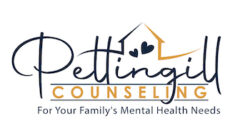Understanding Marriage Counseling: A Guide to Strengthening Relationships
Marriage counseling, also known as couples therapy, is a therapeutic approach designed to help couples navigate their relationship challenges. It provides a safe space for partners to express their feelings, improve communication, and work through conflicts. This article explores the purpose of marriage counseling, its techniques, benefits, and when to seek help.
What is Marriage Counseling?
Marriage counseling is a form of therapy that focuses on improving the dynamics within a marriage or committed relationship. Couples may seek counseling for various reasons, including communication issues, unresolved conflicts, infidelity, emotional disconnect, or major life changes. The aim is to foster understanding and collaboration between partners, leading to a healthier, more fulfilling relationship.
Key Components of Marriage Counseling
- Open Communication: Counselors facilitate open dialogue, encouraging both partners to share their thoughts and feelings in a non-judgmental environment. Effective communication is essential for resolving conflicts and understanding each other’s perspectives.
- Identifying Patterns: Counselors help couples identify recurring patterns or behaviors that contribute to conflict. Recognizing these patterns can provide insight into underlying issues and help partners break the cycle of negativity.
- Goal Setting: Couples work with their counselor to establish specific goals for their relationship. These goals may include improving communication skills, increasing emotional intimacy, or addressing specific conflicts.
- Conflict Resolution: Counselors teach couples effective conflict resolution strategies, helping them learn to navigate disagreements constructively rather than destructively.
- Rebuilding Trust: For couples dealing with issues like infidelity, counselors guide partners through the process of rebuilding trust and intimacy, which can be critical for healing.
Techniques Used in Marriage Counseling
- Cognitive-Behavioral Therapy (CBT): CBT focuses on identifying and changing negative thought patterns and behaviors that contribute to relationship issues. It helps couples develop healthier interactions.
- Emotionally Focused Therapy (EFT): EFT aims to help couples understand and express their emotions, fostering emotional connection and security within the relationship.
- Gottman Method: Developed by John and Julie Schwartz Gottman, this method uses research-based interventions to strengthen relationships. It emphasizes friendship, conflict management, and shared goals.
- Narrative Therapy: This approach encourages couples to tell their stories, helping them reframe their experiences and understand how their narratives shape their relationship dynamics.
- Solution-Focused Brief Therapy: This technique focuses on identifying solutions and desired outcomes rather than dwelling on problems. It encourages couples to envision their ideal relationship and work toward that vision.
Benefits of Marriage Counseling
- Improved Communication: Couples learn effective communication techniques that enhance understanding and reduce misunderstandings.
- Conflict Resolution Skills: Therapy equips partners with the tools to resolve conflicts constructively, leading to healthier interactions.
- Increased Emotional Intimacy: Couples often experience a deeper emotional connection as they explore their feelings and vulnerabilities in a safe environment.
- Better Understanding of Each Other: Counseling fosters empathy and understanding, allowing partners to appreciate each other’s perspectives and experiences.
- Strengthened Relationship: By addressing issues collaboratively, couples can build a stronger, more resilient relationship.
When to Seek Marriage Counseling
Consider seeking marriage counseling if:
- You experience frequent arguments or unresolved conflicts.
- Communication has become strained or unproductive.
- There’s a lack of emotional intimacy or connection.
- Trust has been broken due to infidelity or other issues.
- You’re facing significant life changes, such as parenting, career transitions, or financial stress.
Conclusion
Marriage counseling offers couples a valuable opportunity to strengthen their relationship and navigate challenges together. By providing a supportive environment and effective therapeutic techniques, counseling can help partners enhance their communication, rebuild trust, and foster emotional intimacy. If you and your partner are struggling, seeking the guidance of a qualified marriage counselor can be a crucial step toward a healthier, more fulfilling relationship.

